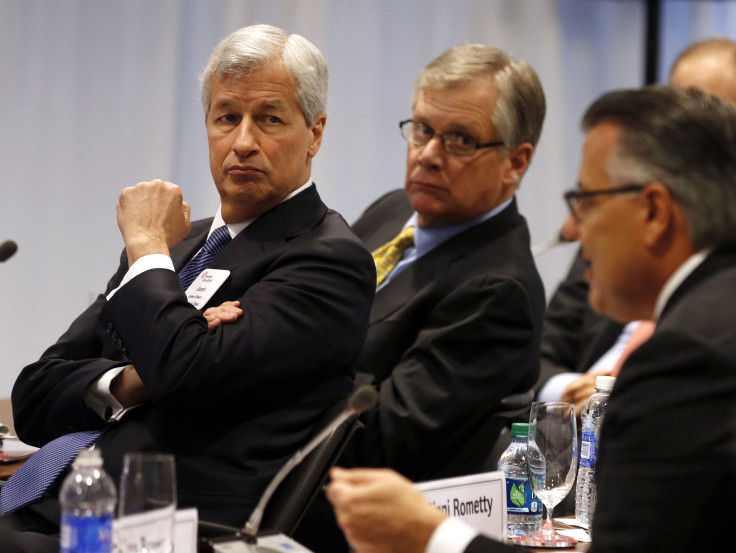Federal Regulators Are Seeking To Finalize Clawback Incentive-Pay Rules For Wall Street

Federal regulators plan to finalize rules governing employee compensation on Wall Street, potentially concluding one of the most divisive outstanding issues in financial reform. The rules, mandated by the Dodd-Frank Act in 2010, would include a clawback provision to discourage bankers from the kind of short-term profit-seeking that pads paychecks but heightens risks.
According to the Wall Street Journal, it has been three years since federal agencies have taken up the incentive reform measure.
Amid all the shock and ruin of the great recession, ordinary Americans found few events more galling than Wall Street firms lavishing extravagant bonuses on executives even as they took in federal bailout money. Goldman Sachs, for example, paid $111 million in bonuses to its top brass the same year it accepted a $10 billion lifeline from the Federal Reserve. President Obama called the practice “shameful.”
Those bonuses were more than just poor taste, though. A report published by the International Monetary Fund found, “Incentive structures at some financial institutions played an important role” in the risk-taking that precipitated the financial crisis.
Clawback provisions require firms to withhold portions of employees’ bonuses long enough to ensure that their performance didn’t harm the long-term health of the company. If evidence arises that an employee or executive engaged in rogue behaviors, clawbacks mandate them to forfeit part of their bonus. It’s unclear, however, which types of financial firms will ultimately be affected by the rulemaking or what kinds of wrongdoing would trigger clawbacks.
Some Wall Street firms already implement clawback policies. When the so-called London Whale cost JPMorgan Chase $6 billion in a series of bungled trades, the firm managed to claw back millions in compensation from the three traders involved. Citigroup, Morgan Stanley and Goldman Sachs also maintain clawback policies.
While the proposed rule stands as one of the more popular of Dodd-Frank’s provisions, critics contend that it may not go far enough. The recent HSBC tax scandal highlights the limits of clawback provisions: Wrongdoing that occurred from 2005 to 2007 isn’t covered under clawback rules in the U.K., where HSBC is based. In response, politicians have advocated extending clawback provisions to 10 years.
Moreover, research has shown that managers subject to such policies tend to demand greater base salaries, which aren't subject to potential clawbacks. Since reaching a high point in 2010, many Wall Street firms have scaled back their clawback policies, in part due to competition from private equity and hedge funds.
© Copyright IBTimes 2024. All rights reserved.












